Along with our staff, we try to stay informed regarding all the new regulations being shackled onto us, from insurance companies as well as our government. While we may disagree with many policies, we have little choice but to comply if we want to actually get paid.
So, what can we do to be paid appropriately for our services?
Collect the patients’ portions of the balances at the time of service. It should be determined if the patient has a deductible, copay, or coinsurance before the patient is treated. Those charges, as well as any outstanding balances, should be paid at the time of check-in. Any biller can you tell you the many challenges of calling and sending statements to get paid afterwards. For as many times as a patient will say the check is in the mail, you probably spent a good chunk of the outstanding balance just in postage.
Use technology to know the insurance status before the patient is seen. Many EHRs now perform this task in real time. If yours doesn’t, pretty much every insurance company has a provider portal where benefits can be looked up. Don’t assume a patient’s insurance is active just because she says so and hand you her card. Many patients are often surprised to find that their insurance is inactive and that they were never notified. Alerting them to their inactive status gives them a chance to re-enroll. If you see a patient whose insurance went inactive, then know you’re in a for a battle to get paid. The insurance company won’t do it, and the patient will argue it’s the insurance company’s responsibility. Also, make sure, if you are a primary care physician (PCP), that you are listed as the patient’s PCP. If you are not, the insurance company is not going to pay you.
Code to the highest degree possible. Yes, we all hate coding. We hated ICD-9 and now ICD-10. It doesn’t add any value to clinical outcomes and is a major time drain. But, if you are contracted with insurance companies, you have to follow their rules.
Don’t assume your billers know everything. You need to check in and see that they are billing accurately. Your license is the one on the line if anything is done incorrectly. While they may need to find a new job, you can go to jail and pay tens of thousands of dollars in fines. Medicare has become more aggressive in regulating fraud and abuse. You can’t afford to not know what is going on with your billing.
Review accounts receivables at least once a month. You should not have many claims that are more than 90 days old. If you do, there is a problem and you are not being paid as quickly as you should be. Find the problem and fix it.
Follow up on past due balances. Any balance over 30 days old requires action. It may be a phone call to the insurance company or patient. It may be a review of online claim status. The insurance company has no incentive to pay you in a timely fashion. In fact, the opposite is quite true: the longer they can hold on to your money that more they profit.
Fight denials. I know we all despise the term: “not medically necessary.” Who among us orders tests that are not necessary? We don’t sit at our desks with joy sticks trying to rack up healthcare costs. When we order something, be it a test, medication, hospitalization, procedure, etc., it’s because the patient needs it.
Healthcare is more complicated than it ever has been before. While insurance companies face certain requirements on how and when they reimburse physicians for services provided, they quickly learn how to skate the edges of these mandates. Unless we take action and try to get paid accurately and timely for our services, their abuse will only worsen.
15% Off Medical Practice Supplies
VIEW ALL
 Manual Prescription Pad (Large - Yellow)
Manual Prescription Pad (Large - Yellow) Manual Prescription Pad (Large - Pink)
Manual Prescription Pad (Large - Pink) Manual Prescription Pads (Bright Orange)
Manual Prescription Pads (Bright Orange) Manual Prescription Pads (Light Pink)
Manual Prescription Pads (Light Pink) Manual Prescription Pads (Light Yellow)
Manual Prescription Pads (Light Yellow) Manual Prescription Pad (Large - Blue)
Manual Prescription Pad (Large - Blue)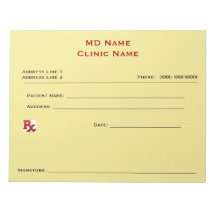
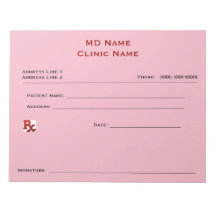
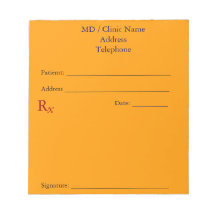
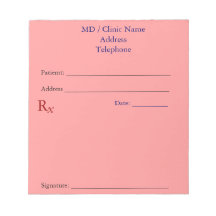
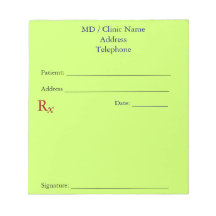
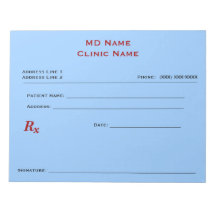
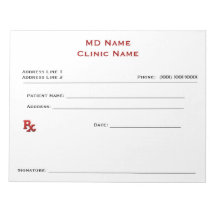
No comments:
Post a Comment